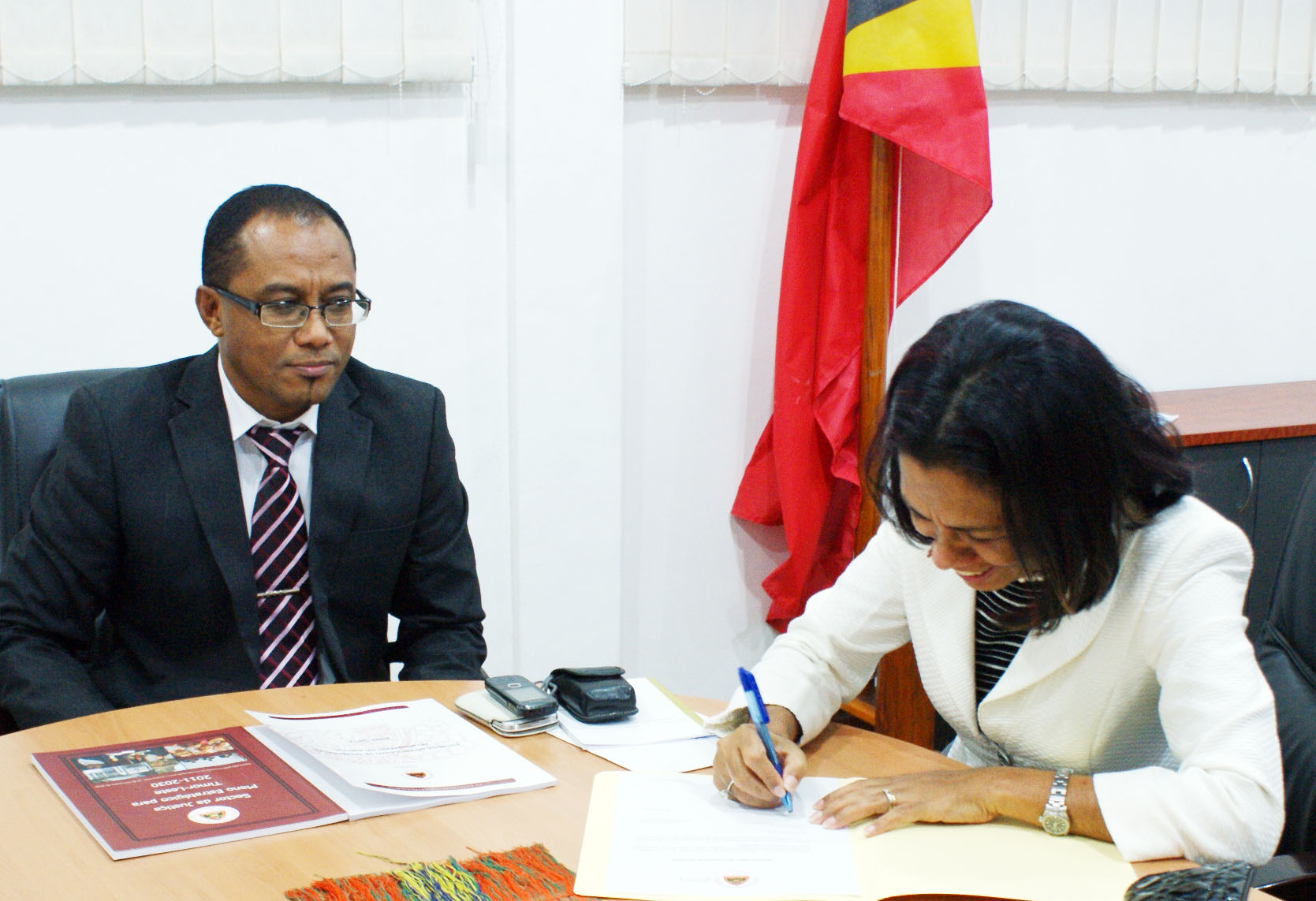Subject: Bishop Belo: Let Us Build a New T-L Free from Corruption
forum-haksesuk.blogspot.com
Thursday, May 29, 2008
LET US BUILD A NEW TIMOR- LESTE FREE FROM CORRUPTION
I have always said that, we the people of East Timor, are being offered the great historical opportunity to build a new nation founded on the values we fought hard to achieve human rights, justice, peace, freedom and sustainable development.
forum-haksesuk.blogspot.com
Thursday, May 29, 2008
LET US BUILD A NEW TIMOR- LESTE FREE FROM CORRUPTION
I have always said that, we the people of East Timor, are being offered the great historical opportunity to build a new nation founded on the values we fought hard to achieve human rights, justice, peace, freedom and sustainable development.
I genuinely appreciate east timorese young generations talking about the issue of corruption . The Church wishes to contribute to this discussion because corruption is a critical moral and ethical issue. Corruption is indeed a global phenomenon. No country is immune from this scourge, although it is, much worse in poorer countries where it is endemic. Corruption the abuse of public office for private gain is a sin. It is a social sin because it undermines the common good. It is anti-solidarity. It is anti-community.
The New Testament teaches ‘there is no authority except from God’ (Rom 13:1). As the steward of this trust, the office holder is answerable to God to whom an account must be given for his/her fulfilment of their trust. Authority is not for the gain or growth in power of either individuals or families. It is given for service (cf Mk 10:45) so that the person in authority can help others grow in dignity and unity (cf 2 Cor 10:8). To use one’s office and its power to serve one’s own interests is to contradict the very nature and purpose of authority. It is a betrayal of the people and community who rightly expect to be served.
Pope John Paul II had stated that the Catholic commitment to the value of community by saying that ‘ solidarity is undoubtedly a Christian value it is a firm and preserving determination to commit oneself to the Common Good’ (O Bem Comum).
Corruption is acting as a brake on sustainable development. It reduces or retards a country’s economy. It takes resources from education and health, rewards the incompetence and dishonest and penalises hardworking and honest citizens.
Corruption widens political and economic inequality. It discourages or steal private sector investment and deprives ordinary citizens of a responsive and even- handed public administration.
Corruption and the struggle against it is an issue that stands above the divisions of party politics. Anyone who is concerned for the future of East Timor and the well-being of our people can and should come together to ensure that it is prevented, if not eliminated, in our collective process of nation-building.
I propose that the way to go about in East Timor is through dialogue, the raising of awareness and through a coalition of all three sectors government, civil society and the business sector to formulate a plan in three key strategic areas:
- Prevention of corruption; - Prosecution of those who commit graft and corruption; and - Promotion of a corruption-intolerant culture.
We need to develop a set of tools that we can use to prevent and combat corruption. These are accountability, transparency and the active involvement of civil society. These are tools that:
- Build more effective and efficient government;
- Secure the State against infiltration by interested groups or organised crime;
- Protect human rights;
- Alleviate poverty through participatory development process and access to essential services such as health and education;
- Protect human rights;
- Alleviate poverty through participatory development process and access to essential services such as health and education;
- Build public belief in the institutions that server them; and
- Establish public confidence in government.
- Establish public confidence in government.
Within the administration, we need to ensure that the our government is transparent and accountable and the justice system has integrity. There are some practical measures we can implement now:
- Ensure salary levels are high enough for a government official to be able to support his or her family without needing “extra income”;
- Ensure that government officials are respected and can respect by refusing to refuse bribes.
- Ensure that the community leaders show the way by refusing to take part in corruption activities. Many people learn from their leaders, both in a practical and in moral sense. Leaders must be totally clean and show the highest standards in everything they do.
- Ensure that the civil society is strong and able to monitor and subject government leaders to questioning and analysis about their activities. Civil organizations (ONG and people’s organization) must be independent of government and closely linked to the people.. It is crucial that we lay the basis for this now.
- We need to put more emphasis now on creating a legal and police system which is effective in provide justice. Leaders who break the law must be made accountable for their crimes. The ordinary people will see this and know that a new society has commenced. But if we fail to ensure that the law applies equally to everyone, regardless for their status, we will be laying the grounds for future problems.
- Introduce a code of conduct for politicians, for appointment process, and for lobbying practices. This can curtail corruption as can, in the longer term, establishment of official regulatory mechanism.
I pray to God that the Government and National Parliament will be able to implement moral values in our beloved homeland.
Bishop Carlos Filipe Ximenes Belo


No comments:
Post a Comment